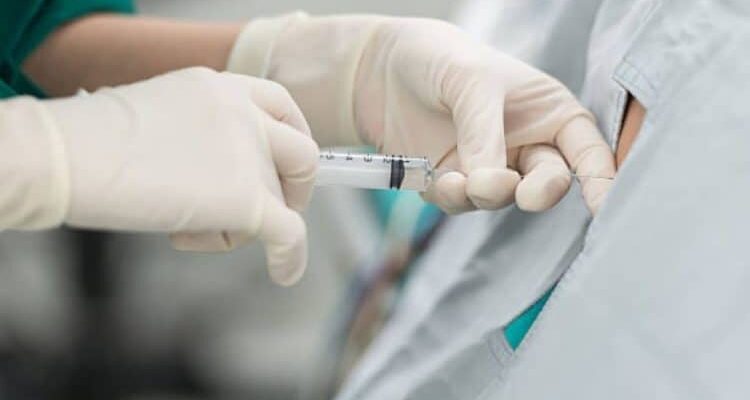After an organ transplant, you need to use immunosuppressive drugs as a measure to prevent rejection of the transplanted organ from the body. However, this drug also brings a high risk of infection to the user. Therefore, you need to take precautions to protect your health.
Immunosuppressants can temporarily block the effects of this purely defensive layer. They help the body function relatively in harmony with the transplanted organ. The problem here is that the immune system is limited, you will definitely be much more susceptible to infection than before. That’s the flip side of organ transplant therapy.
According to Barry Friedman, executive director of the Organ Transplant Program at Children’s Medical Center in Dallas, the problem with living with a transplant is the balance between rejection and infection. He said that organ transplant recipients need to take enough medicine to prevent the body from rejecting them, but at the same time keep the body free of infections.
Up to now, doctors as well as professionals have been much more successful in creating the necessary balance. You will not have to worry about whether you have to live in a sterile room to protect your health or not. At the same time, after the first few weeks or months, the limitations in life seem to decrease significantly.
According to Jeffrey D. Punch – Dean of the Department of Transplantation at the University of Michigan Health System, Ann Arbor – healthy daily living habits will help patients get through this phase more easily.
Precautions after organ transplant
Immediately following organ transplant surgery, your body is especially vulnerable because you are in the induction phase of immunosuppression. Your doctor will prescribe high doses, so you need to pay extra attention to your body. You should practice habits like:
- Wash your hands often. Hand washing is a great way to minimize your exposure to germs. This is an especially important step to take before you eat.
- Avoid contact with sick people. It’s best to limit contact with anyone who has a cold or is suffering from a contagious illness like measles or chickenpox.
- Avoid people who have been vaccinated recently. Some vaccines against diseases such as influenza and measles use live viruses as the main antigenic component. Although it has been attenuated, it still has the potential to cause disease in people with weakened immune systems if accidentally exposed
- Avoid crowded areas. For example, shopping malls or movie theaters.
- No pet care. Pets carry many human pathogens, so you should limit your exposure to them. You don’t have to throw them away, but instead ask your partner or children to take care of them during this time.
- Don’t do gardening. The soil contains many pathogenic bacteria. Therefore, you can hire a gardener to take care of it or leave it alone for a few months.
- Clean your teeth regularly. This helps keep your mouth infection-free.
- Don’t ignore cuts or scratches. Please disinfect the wound and apply a bandage. Contact your doctor immediately if you have any signs of infection.
- Be very careful when having sex. Oral diseases like genital herpes have the potential to become a serious problem for anyone. It is especially dangerous for people who have had organ transplants. Condoms alone are not enough to protect you completely. Even saliva can give you a cold because it contains many disease-causing bacteria. So, practice as much safety as possible when having sex.
Specific recommendations depend on your health and fitness. Where you live can even make a difference. If you live in the city, it’s hard for you to avoid the crowds. Rural living, on the other hand, incorporates various risks, such as a high probability of exposure to animals or contaminated well water. Contact your health care professional for further advice.
Long term preventive measures
For about 6 months to 1 year after an organ transplant, your doctor may reduce the amount of medication you take. You will enter the maintenance phase with a lower dose. At this point, you can rest assured, not afraid of easily infected as before. However, you still need to take precautions. Make sure you wash your hands often and limit contact with people who are sick or recently vaccinated.
If your body shows signs of rejection, your doctor may need to change your medication or increase your dose of your immunosuppressant. This method is called immunotherapy against rejection. At that time, the immune system will be more suppressed and you will need to take care of your health more.
Your doctor will also sometimes need to change certain medications. Some medications may only work well for a certain amount of time. New and more effective drugs appear on the market that have the potential to replace the old ones.
Therapy after organ transplant surgery

Living with an organ transplant means taking multiple supplements that can last a lifetime. Most people need to take 6 to 12 different medications per day or more. Absorbing too much medicine makes the body really uncomfortable.
Some people are overwhelmed with the amount of medication they have to take, says Richard Perez, MD, director of the Transplant Center at the University of California at Davis Medical Center. However, this is normal as they are involved in a complex treatment regimen.
Medication plays an essential role in health care. Here are a few tips to help you through this process:
- When taking immunosuppressive drugs, follow the advice of your doctor or healthcare professional
- Divide dose into container by day or by week
- Use an alarm clock or set a reminder on your phone to remind you to take your medicine
- Ask family members to help you stick to your medication schedule
- Keep medicine out of reach of children and pets
- Store the medicine in a cool and dry place
- Make a list of the medications you are taking and keep it in a permanent, easy-to-find place
- If you forget to take a dose, do not arbitrarily double the dose next time
- If your doctor approves, take the medicine with food to prevent gastrointestinal side effects
- Never stop taking a medication without approval from your doctor or healthcare professional.






